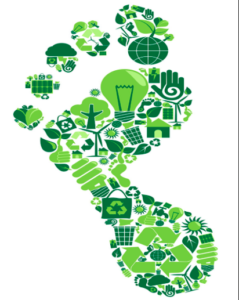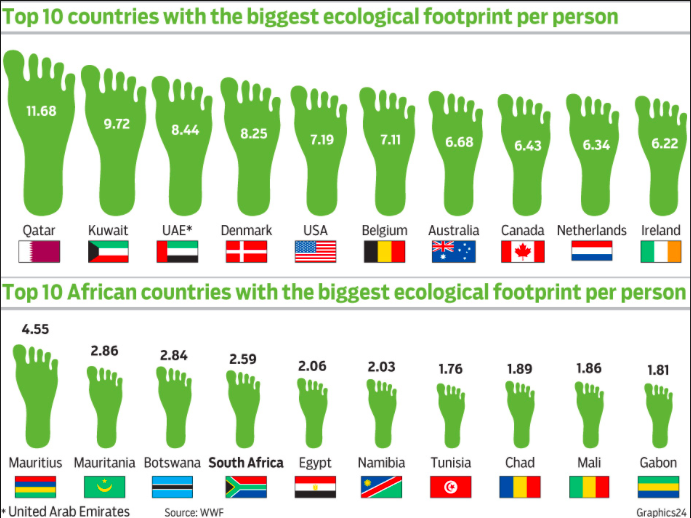The term is also sometimes referred to as a carbon or greenhouse gas (GHG) or ecological footprint. It is a measure of the impact from an individual, group, organization or activity on the environment. Typically it measures the amount of carbon or GHGs that the individual, group, organization or activity generates. With such measures we can see the per capita carbon and GHG emissions for people in different countries.

Another way of looking at the term is that it measures the quantity of nature it takes to support people or an economy, or the amount of natural resources used. From this perspective it highlights the dependence of the human economy on natural capital or resources. The measurement is often in the number of planets it takes to sustain human activity, or how fast human demands are outpacing the planet’s ability to renew natural resources or ecosystems. For example, if the global human footprint is 1.7 planet earths, it means that we need 1.7 planets to sustain the way we are living or using resources. Of course, we do not have 1.7 planets.

The footprint of a developed rich country will be very different from that of a developing, poor country, and we can see how many planets it takes to sustain different lifestyles.
Some further ideas to explore on Environmental Footprint:
Find a GHG and carbon calculator and estimate your own GHG and carbon footprint and see how you compare to others within a comparable socio-economic class or within your geographical area.
Do something to lower your carbon or GHG footprint.
Find an environmental footprint calculator and estimate the footprint for your community and compare it to other communities in your region.
Use the calculators and compare your country to other countries for carbon, GHG and environmental footprints.
Sources:
“We change how ecological resources are managed so all can thrive within the means of nature,” Global Footprint Network www.footprintnetwork.org
“U.S. Environmental Footprint Factsheet,” University of Michigan Center for Sustainable Systems. bit.ly/35d97mu
“What is an Environmental Footprint? think step bit.ly/2QBPC1G
“Reduce Your Ecological Footprint,” Reset. bit.ly/2QvbhZz
“Calculate Your Carbon Footprint: What’s your carbon footprint? Use this interactive calculator to find out—and take action,” The Nature Conservancy. bit.ly/39oO57P


No comments yet, add your own below